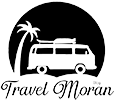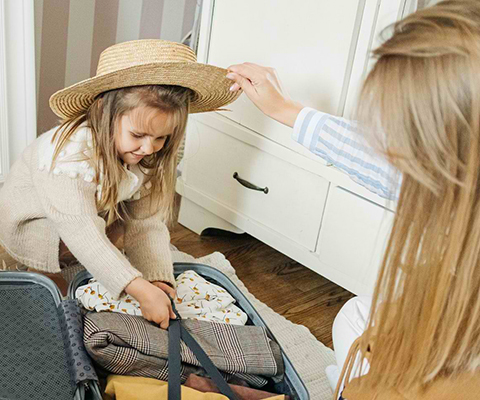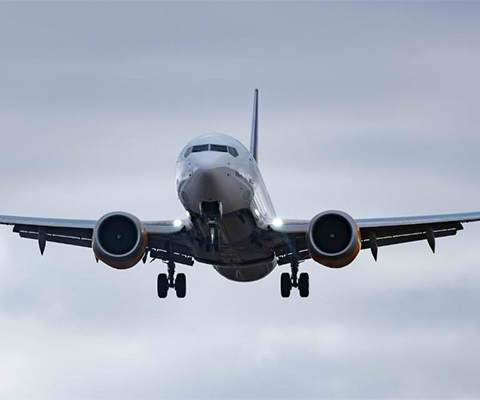By Pauline Maitha
Travel opens the door to thrilling adventures, unforgettable memories, and life-changing experiences. But with all the excitement, it’s perfectly normal for some anxiety to sneak in. Even the most seasoned travelers sometimes face moments of fear and anxiety about travel. The good news? Most travel fears are completely manageable, and facing them often leads to incredible personal growth. In this guide, we’ll break down the 10 most common travel fears and show you exactly how to overcome them.
1. Fear of Safety While Traveling
Safety concerns are common when planning a trip, especially if you’re heading somewhere unfamiliar. Before booking that flight, check your country’s official travel advisory website for safety updates and entry requirements.
Once you arrive, stick to well-lit areas, especially at night. Most importantly, invest in good travel insurance. It won’t stop bad things from happening, but it ensures you’re protected if they do.
2. Fear of Getting Sick or Injured Abroad

Always ready for the unexpected. A well-packed medical kit goes a long way
The thought of getting sick or injured in a foreign country can feel overwhelming. But here’s the thing: apart from serious emergencies that would require a visit to the hospital, common health issues people face while traveling (e.g., minor cuts, headaches, or stomach bugs) are usually manageable. Start by packing a basic travel first aid kit. Having essentials like bandages, pain relievers, antacids, antiseptic wipes, etc., can give you a great sense of comfort. Before your trip, check the CDC’s Travelers’ Health page for any vaccine recommendations or health tips related to your destination.
Make sure your travel insurance covers medical emergencies. It’s a small investment that could prevent a medical emergency from becoming a financial disaster.
3. Anxiety Caused by the Fear of Flying
Turbulence, alarming news stories, or the uncertainty of being in the air can trigger anxiety. For first-time flyers, the unfamiliar process of navigating airports, security checks, and takeoff can add an extra layer of stress.
One helpful way to reduce this anxiety is to arrive at the airport early, giving yourself plenty of time to check in, go through security, and get comfortable before boarding. This removes the pressure of rushing and helps you stay calm.
During the flight, try deep breathing or meditation to stay calm, and distract yourself with a book, movie, or music. If you’re feeling uneasy during the flight, speaking with a crew member can provide reassurance; they understand and often deal with nervous passengers.
4. Fear of Getting Lost
Worried about getting lost? It happens, and honestly, it’s part of the adventure. Navigating new destinations can feel overwhelming, especially for first-time travelers who aren’t yet confident exploring unfamiliar cities. Download offline maps or GPS apps before you go, and carry a paper map just in case. If you do lose your way, don’t panic. Sometimes, getting lost uncovers amazing surprises.
When asking for directions, it’s safer to approach someone in uniform, such as airport staff, hotel employees, or security personnel, for help. While many people are friendly, approaching uniformed people is the safest choice.
5. Language Barriers
Can’t speak the local language at your destination? It’s a common concern. Learning a handful of everyday phrases like “hello,” “thank you,” “where is,” etc., before you go can make interactions smoother. Translation apps like Google Translate are super helpful and can translate menus, signs, and basic conversations on the spot.
6. Fear of Being Robbed or Scammed
It’s normal to worry about your stuff while traveling, but a few simple habits can help. Try using anti-theft bags or a money belt to secure your valuables. Opt for a secure crossbody bag that you can keep an eye on. Before you head out, spend a little time checking out common scams in the area; knowing what to watch for makes a big difference and helps you relax a bit more.
7. Fear of Running Out of Money
We’ve all worried about running out of money while traveling; expenses can add up faster than expected! Set a daily budget and document every expense to stay on track. It’s also wise to carry an emergency credit card and stash some extra cash in a safe spot in case the unexpected happens
8. Fear of Missing Flights or Connections
Missing flights or connections is a common travel anxiety. Aim to arrive at the airport well ahead of your departure time by setting multiple alarms or reminders, and keep your travel documents easily accessible for quick check-in and security screening.
9. Fear of Homesickness or Loneliness
Feeling homesick or lonely is a common experience for travelers, especially if you’re going solo or it’s your first trip. Staying connected with loved ones through regular calls helps. Additionally, bringing along little comfort items, like photos of loved ones and your favorite snacks, can make a big difference.
Choosing social places like hostels is a great way to meet new people, and writing in a travel journal can help you sort through your thoughts.
10. Fear of the Unknown
Sometimes anxiety about travel pops up without a clear reason, especially when you’re traveling to new places. A good way to handle this is to prepare just enough but leave some space for surprises. Watching travel videos or reading blogs about your destination beforehand can make things feel more familiar. Celebrate the little wins along the way, and try to see any discomfort as part of the adventure and growth.
Tips for overcoming first-time traveler fears.
If this is your first big trip, you might feel overwhelmed, a common feeling for many new travelers. The key is to prepare, stay flexible, and take it one step at a time. Start with beginner-friendly destinations. Every experienced traveler was once a beginner, too.
Frequently asked questions about common travel fears
Q: Is it normal to feel scared before traveling?
A: Absolutely! Even experienced travelers get those pre-trip jitters. It’s a sign that you care about your journey, and with a little preparation, that nervous energy can turn into pure excitement.
Q: How can I prepare better to ease my travel fears?
A: Preparation is key. Research your destination, get travel insurance, make backup plans, and learn a few basic local phrases. Feeling informed and ready gives you a huge confidence boost before you leave home.
Q: What if something goes wrong while I’m traveling?
A: First, breathe. If needed, contact your hotel, the local embassy, or emergency services. Having a plan (and travel insurance) means you’re never truly stuck.
Q: Are some destinations riskier than others?
A: Some places do come with extra considerations, but with the right precautions, you can travel safely almost anywhere. Always check official travel advisories before you book, and stay aware once you arrive.
Q: How do I stay confident when traveling solo?
A: Stay connected with loved ones, trust your instincts, and consider joining group tours or local experiences. Solo travel can initially feel intimidating, but every small win you have will build your confidence.
Q: Why am I afraid to fly, and how do I get over it?
A: Fear of flying (aviophobia) is very common. It often comes from turbulence, fear of heights, or feeling out of control. Fortunately, it can be managed. For calming techniques like breathing exercises and mindset shifts that really work to ease the fear, see #3: “Anxiety Caused by the Fear of Flying” in this article.
Q: What to take for flight anxiety?
A: Many travelers find relief with simple tools like noise-canceling headphones, calming music playlists, relaxing podcasts, or stress-relief apps. Some people use natural remedies like lavender oil or herbal teas. In more serious cases, a doctor might recommend short-term anti-anxiety medication. Always consult with a healthcare professional before taking anything new for anxiety.
Q: What if I get sick while traveling?
A: First, don’t panic. Many travel-related illnesses are mild and can be handled with basic care, such as a common cold or an upset stomach. Before your trip, pack a simple first aid kit, know where the closest clinic is, and keep your health insurance up-to-date in case of an emergency. In many destinations, you can easily find pharmacies and clinics with English-speaking staff.
Conclusion
Travel can initially feel intimidating, but every step you take outside your comfort zone is a step towards growth. The key to overcoming travel anxiety is preparation, self-trust, and embracing the journey with an open mind. It’s okay to feel nervous; just don’t let it stop you from exploring the world. As Saint Augustine said, “The world is a book, and those who do not travel read only one page.” Don’t let anxiety keep you from turning the pages of your own story. Start small if you need to, perhaps with a weekend trip nearby, and gradually build your confidence for bigger adventures.
Need help planning? Check out Travel Moran for destination ideas, travel guides, and tips to boost your confidence before you go. Bookmark this guide or share it with a fellow traveler who struggles with anxiety about travel and needs a confidence boost!










